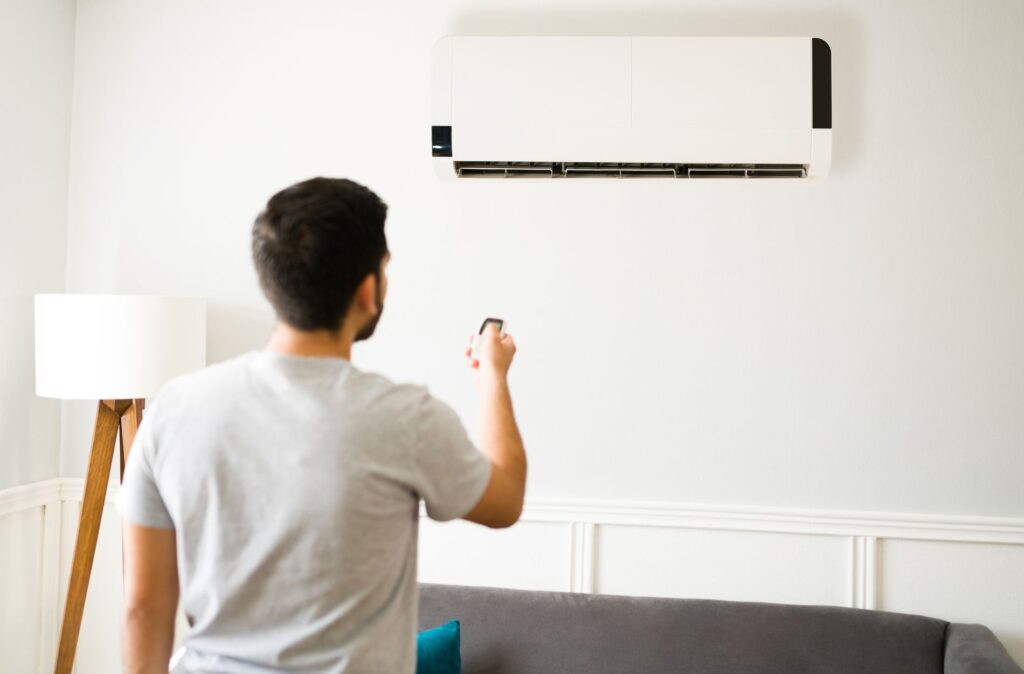Our homes should be a place of comfort, especially during the hot summer months. However, if your air conditioning system isn’t working as it should, maintaining a comfortable indoor environment can become a challenge. Knowing when it’s time to replace your AC unit is crucial for ensuring consistent and reliable cooling.
Frequent breakdowns and continual malfunctions are clear indicators that your current AC may no longer be up to the task. As your system ages, it may need frequent repairs, which can add up both in terms of inconvenience and cost. Instead of constantly dealing with an unreliable system, replacing your AC can provide both peace of mind and improved performance.
Additionally, an older AC unit may struggle to maintain energy efficiency, leading to higher utility bills. If you notice rising energy costs despite regular maintenance, it might be time for a new, more efficient model. A new AC unit can offer better energy efficiency, resulting in savings on your energy bills and a reduced environmental impact. By recognizing these signs and acting proactively, you can ensure your home remains a comfortable haven year-round.
Frequent Repairs Signal the Need for AC Replacement
Dealing with frequent AC repairs can be a clear sign that it’s time to consider replacing your unit. While occasional repairs are to be expected, regularly having to fix issues can indicate that the system is deteriorating and may not last much longer. Persistent problems not only disrupt your comfort but also add up in terms of cost and inconvenience. When you constantly need repairs, it becomes more cost-efficient to replace the unit rather than continue patching it up.
A new AC unit eliminates the need for frequent repairs and provides more reliable performance. Investing in a new unit can save you money in the long run by reducing the need for maintenance and fixing recurring issues. Additionally, modern AC units come with warranties, giving you peace of mind that future repairs will be covered. This switch can significantly improve your home’s comfort and efficiency, making it worthwhile to upgrade.
Signs of Reduced Efficiency and Higher Energy Bills
Several indicators suggest that your AC unit is no longer efficient. One primary signal is a noticeable increase in your energy bills. If your system is old or in poor condition, it may consume more power to achieve the same cooling effect, which drives up your electricity costs. Another sign is that your AC runs longer cycles or struggles to maintain the set temperature, indicating it’s working harder than it should.
Upgrading to a new AC unit can enhance energy efficiency and lower your monthly bills. Modern systems are designed to consume less energy while providing optimal cooling, reducing overall operational costs. Our professionals can guide you in selecting an energy-efficient model that aligns with your cooling needs, ultimately improving your home’s comfort and saving you money over time.
Consistent Temperature Fluctuations and Hot Spots
Inconsistent temperatures and hot spots within your home are often signs that your AC system is failing. A well-functioning air conditioning unit should maintain a consistent temperature throughout your living spaces. If certain rooms are always warmer or cooler than others, this imbalance can lead to discomfort and decreased system efficiency. These fluctuations could be due to an aging system or ductwork issues that can no longer adequately distribute air.
Replacing your old unit with a new, reliable system can resolve these problems and ensure even cooling across all areas of your home. New systems have better technology and improved airflow designs that help maintain consistent temperatures. By upgrading, you not only enhance comfort but also improve the overall efficiency of your HVAC system, making your home a more pleasant place to live.
The Age Factor: When Your AC Reaches the End of Its Lifespan
AC units have a typical lifespan that ranges from 10 to 15 years. As your system approaches this age, you may notice a decline in performance and an increase in maintenance needs. Older units often struggle to keep up with cooling demands and can become prone to breakdowns. If your AC unit is nearing the end of its expected lifespan, it’s wise to start considering a replacement before it fails completely.
Recognizing the signs of an aging system helps you plan for a seamless transition to a new unit. Upgrading to a modern AC system before the old one breaks down entirely ensures uninterrupted comfort in your home. Our professionals can help you evaluate your current system and recommend the best replacement options, ensuring that your new unit meets your home’s cooling needs effectively.
Conclusion
Understanding the signs that indicate your AC unit needs replacing is key to maintaining a comfortable and efficient home environment. Frequent repairs, reduced efficiency, inconsistent temperatures, and an aging system all signal that it might be time to invest in a new air conditioning unit. By addressing these signs promptly, you can avoid unexpected breakdowns, improve your home’s energy efficiency, and enhance overall comfort.
We are committed to helping you choose and install the perfect AC system tailored to your needs. Our professional technicians at B.L.R. Heating & Air are here to ensure your new unit operates at peak performance, providing you with the reliability and comfort you deserve. Contact us today to learn more about our air conditioning services in Woods Cross.





